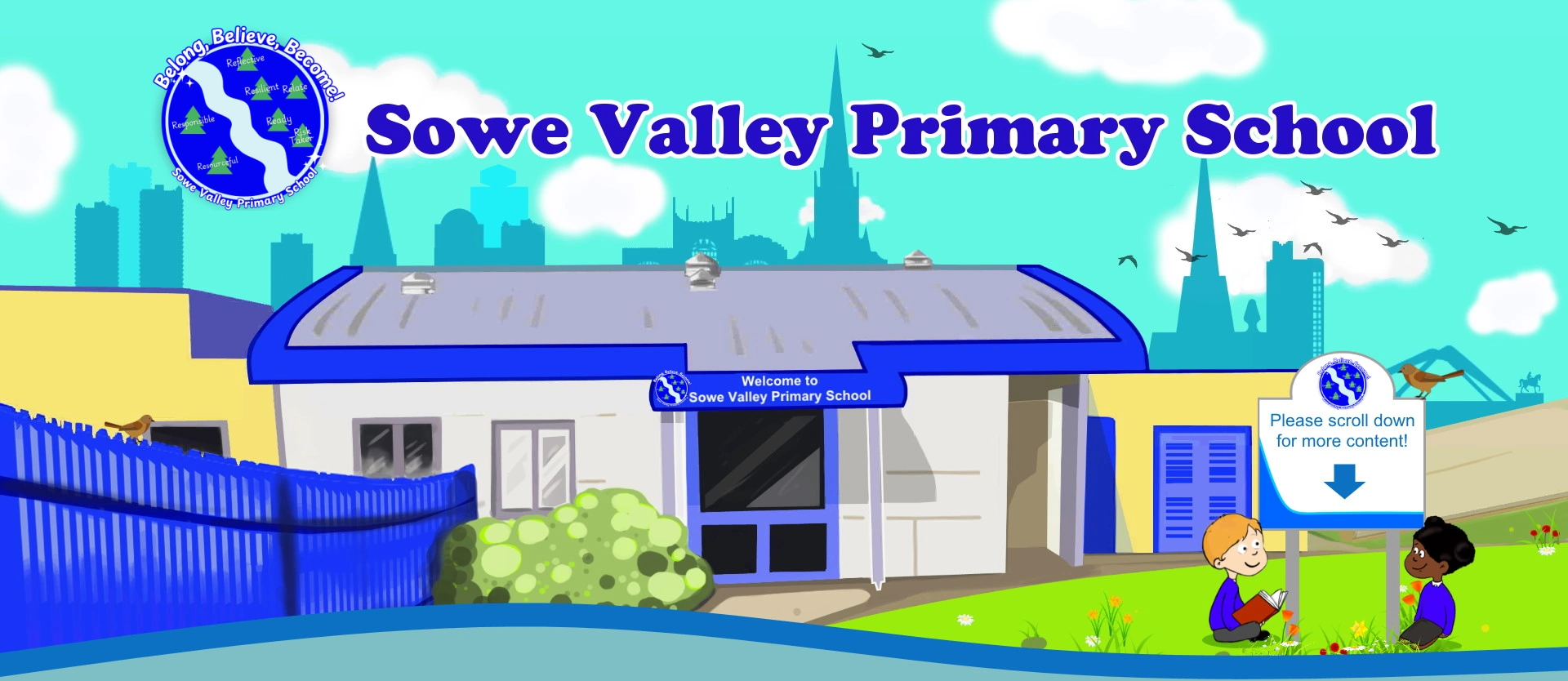
Pupil Premium

In celebration of World Book Day, some of our teachers have shared their favourite stories for you to enjoy at home. These are available on your child’s Google Classroom stream and will soon be available to watch on our school website 🤩🤩📚 pic.twitter.com/PmGv35Ea24— Sowe Valley Primary School (@SoweVPrimary) March 8, 2024
Pupil Premium Strategy Statement
School Overview
| Detail | Data |
| School name | Sowe Valley Primary School |
| Number of pupils in school | 235 |
| Proportion (%) of pupil premium eligible pupils | 36% |
| Academic year/years that our current pupil premium strategy plan covers (3 year plans are recommended) |
2021-2022 2022-2023 2023-2024 2024-2025 |
| Date this statement was published | December 2024 |
| Date on which it will be reviewed | December 2025 |
| Statement authorised by | Emma White |
| Pupil premium lead | Emma White |
| Governor / Trustee lead | Victoria Seaton |
If your child does not have Free School Meals, but may be eligible because of your family’s income level, please contact the office (in confidence) to register them. Even if you do not wish them to have the meals, this would mean the school could still claim Pupil Premium funding that may be used to help your child.
Click here to access the CCC website to see if you are eligible for Free School Meals.
Supporting Pupil Premium Learners at Sowe Valley
In Every Lesson:
- Greet individuals each morning, get to know them personally as well as academically, check in with them after transitions eg weekends, break times, periods of absence
- Go over to them after main teach and check they understand the learning before they start and then T/TA check in with them several times during the lesson
- Ensure they know what they are aiming for – what does a good one look like? How will they know they have met the learning objective?
- Use a range of questioning to support and challenge – use targeted questioning and additional thinking time to increase their participation
- Offer verbal feedback throughout the lesson
- Mark several answers with the child during the lesson to ensure they are progressing well
- Check who they are sitting next to – is it someone who can give them different ideas
- Include paired and group work – provide ground rules for this and make sure pp are actively involved
- Check in with individuals at the end of each day and ask them how their day has been. Wish them a nice evening.
- Provide lots of praise and encouragement.
- Encourage a child to ask another child to support them with their response if they are struggling.
- Opportunities to show/explain how they are feeling
In English Lessons:
- Ensure children understand the meaning of the vocabulary when gathering ideas
- Encourage children to speak their sentences out loud before writing them.
- Check individuals are clear on the focus of each learning chunk (lens)
- Provide extra support during the planning and editing process.
- Provide a reading pack which remains in the child’s drawer.
In Maths Lessons:
- Provide access to times table squares, 100 squares, number lines, bead strings, diennes, numicon …Teach children when they could be used so they become more independent
- Provide modelled examples for children to copy the method
- Use concrete resources to secure a new concept
- Use starters to revise previous learning frequently to secure it in the memory
- Provide speaking frames so children can reason and explain their answers clearly
Interventions:
- For a set period of weeks not indefinitely
- Specifically targeted at gaps
- Monitored for effectiveness – if it’s not helping to close the gaps then try a different approach
- Pre-teaching concepts and vocabulary
- If children are not accessing home learning, find daily reading/spelling/times table slots
Whole School:
- Subsidising school clubs and offering a wide variety
- Providing an Amazon Fire to allow children to access TTRS, Google Classroom and their homework.
- Toast provided for breakfast
- Free jumper to all reception children who sign up for FSM.
- Spare uniform from the box for any child who needs it.
- Parent workshops
- 1:1 learning mentor support
Pupil Premium Spend and Grant Documents
